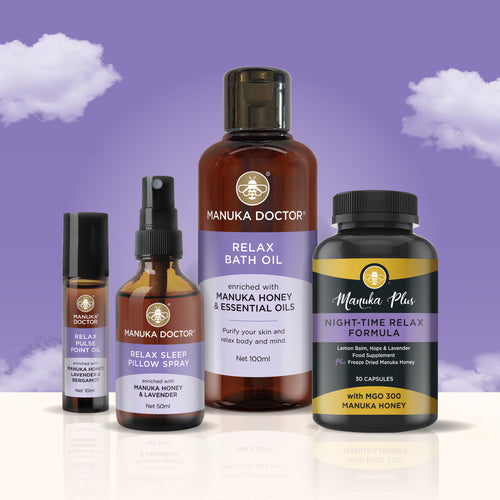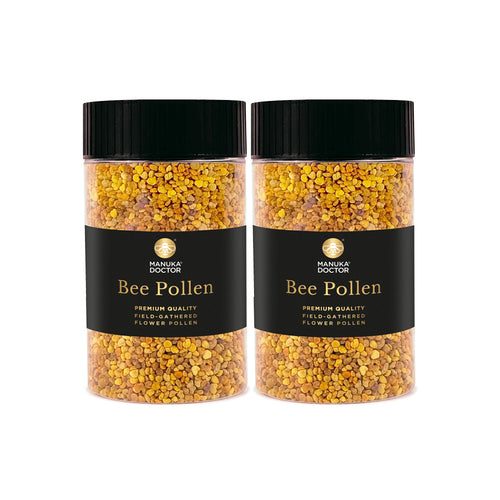You already know that Manuka Honey can boost your wellbeing – there’s plenty of studies to show it can improve wound healing1, ease a cough, and even protect your gut health – but why exactly is it so good for your skin? We’ve found the science behind the buzz that Manuka Honey is a skin saviour.
The basics – what is Manuka Honey?
Manuka Honey has antibacterial and antioxidant activities, mainly thanks to a natural compound called methylglyoxal (MGO). And it’s the MGO that makes Manuka Honey so interesting from a dermatological point of view.2
The Benefits Of Manuka Honey For Your Skin
The MGO found in Manuka Honey gives it greater antibacterial properties than other honeys,3 which means it’s better able to fight skin conditions like acne and rosacea. Manuka is anti-inflammatory too, so it can help soothe red, irritated skin.
Anti-Ageing Skincare Benefit of Manuka Honey
Manuka also makes the perfect anti-ageing ingredient. It’s packed with natural antioxidants that help ward off damage caused by free radicals, such as the appearance of wrinkles. Trials have found that manuka oil can suppress the action of MMPs – a group of enzymes that destroy collagen – in the skin.4 A lack of collagen = a lack of elasticity: essentially ‘sagging’!
Product Tip: Boost Your Collagen
Why not try our daily Collagen Supplement alongside our Manuka Honey skincare to boost the benefits. With over 150 5 star reviews our customers are enjoying the benefits of Collagen Queen.
Manuka Honey for Dry Skin
You can also tackle dry skin with Manuka, and dry skin is a major cause of fine lines and wrinkles. However, honey has well-known humectant properties5 – in other words it can draw in, and hang on to, moisture – which can plump up your skin cells and helps relieve chapped lips, too. Manuka also has an emollient action, soothing and smoothing dry, irritated skin.
Manuka Honey's Skin Repairing Benefits
One of Manuka Honey’s most valuable properties is its ability to repair and regenerate skin cells. Research shows that it can quickly remove dead skin cells, stimulating new tissue growth,6 plus it reduces swelling, skin damage and scarring;7 ideal for acne sufferers or those looking to gently refresh their skin.
Can you put Manuka Honey directly on skin?
Yes, you can go back to basics and use pure Manuka Honey on your skin. Many use Manuka Honey as a DIY cleanser or skin mask
If you do want to try a DIY skincare treatment at home then you can find 5 DIY Manuka Face Mask ideas on our blog, so you can enjoy the nourishing and moisturising benefits of Manuka for your skin.
All Manuka Doctor products are formulated with skin-boosting Manuka Honey and you can shop all of our loved skincare here.




